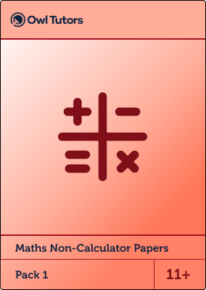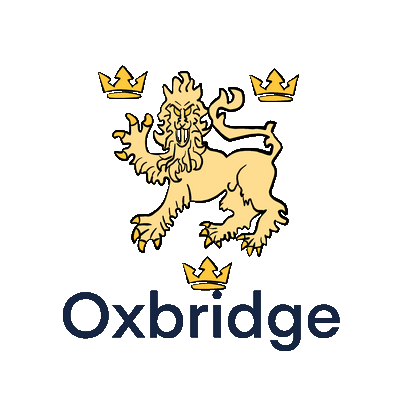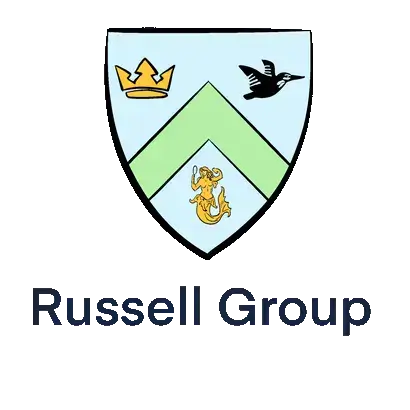11 Plus Maths Papers
The following papers have been written by our 11 Plus Maths tutors, all of whom are qualified teachers with experience of preparing students for entrance exams. They are free for anyone to use for non-commercial use. The papers are designed to reflect the various examination styles used and expected levels at 11+ Maths.
11 Plus Maths Papers - 7 papers available
Latest 11 Plus Maths Papers
Are you looking for a tutor with specific school entrance experience?
Browse our school guide
11 Plus Maths Paper Guide
The 11 plus maths paper is a crucial part of the assessment process. These papers are challenging and test a wide range of mathematical concepts, as well as problem solving skills.
Most maths papers will start with simple one step questions such as 234 x 27 and write 7/8 as a decimal, before moving on to harder word and context based problems. Owl Tutors’ maths papers are designed to support your child’s familiarisation and practice of the mathematical topics in the 11 plus assessment.
Once completed, these papers will give you and/or your tutor a better understanding of the topics your child needs further help with.
What skills are being tested in 11 Plus Maths Papers?
Firstly, depending on the school you are applying to, there are different assessment processes. For some schools your child will have to sit a multiple choice pretest (usually ISEB) and then sit another written maths paper, other schools just do one or the other. In any case all maths papers cover, in various degrees of difficulty, these six main areas:
- Properties of numbers, number problems and calculations: This includes, but is not limited to, the four operations, prime/squared/cubed numbers, HCF and LCM, sequences, divisibility rules and negative numbers.
- Fractions, decimals and percentages (FDP): FDP plays a big part in the 11 plus maths paper. In most papers there is a large proportion of questions that have a FDP element to them. Therefore, it is really important that your child is confident in converting between FDP, finding FDP of numbers, as well as applying these to word problems.
- Ratio: Again, ratio is a big part of most 11 plus maths papers. As well as being able to work out simple ratios, it is really important that your child can identify when to use ratios to solve more complex word problems.
- Algebra: Depending on the school you are applying to, your child may not get tested on algebra. However, basic equations do feature in some harder exams, and for schools such as St Pauls, Highgate and Latymer Upper there have been problem solving questions where you need to use simultaneous equations.
- Measurement: A seemingly simple topic. However, conversions can cause confusion and lead to silly mistakes and lost marks. Make sure your child is really confident converting between metric units, as well as knowing the conversion rates between feet/inches and cm/m.
- Shapes and space: These questions will test your child’s ability to work out area and perimeter of quadrilaterals, triangles, parallelograms and sometimes trapeziums, and the application of this knowledge to word problems.
- Data handling: For many children data handling is a welcome break from the other more intense topics. These questions involve reading data from charts, drawing bar charts and graphs, as well as using the four averages. From my experience many papers include ‘backwards mean’ questions, so be mindful that your child can find the mean, but can also find the missing number when given the mean.
- Problem solving: Problem solving can be tricky as there are no specific strategies to teach. Therefore, practice is really important. Often, the problem solving questions get recycled throughout exam papers over the years, so try and expose you child to as many practice papers as possible!
How to use Owl Tutors’ Maths Papers
Owl Tutors’ maths practice papers will cover all of the above topics through a variety of different questions. These questions are designed to not only test your child’s ability to use a mathematical concept but to also:
- Develop your child’s confidence in applying these concepts to one and two step word problems.
- Within one question use multiple mathematical concepts such as using ratio, FDP and the four operations to solve more complex word problems.
- Develop your child’s abilities to problem solve.
If you are in the early stages of your 11 plus practice, I would suggest not to time your child for the first few papers. It is best to give your child space to familiarise themselves with the questions without the impending doom of a ticking clock which can cause rushing and mistakes. In the early stages, if your child needs to complete the paper in two goes, that’s fine.
Once they have finished their first few papers, then you or a tutor can mark it and find out where the gaps are. This is also a good time to see where your child makes most of their ‘silly mistakes’, so you can support them in checking their work.
Needless to say, it is important for your child to show their workings! Although easier said than done for some, there are allocated marks for the correct use of a mathematical strategy, even if there is a small error in the answer.
And finally, work up to timing your child. Once they have a few papers under their belt, then is the time to start adding a timeframe. Speed and accuracy are key, but it does not come overnight, so keep practising!










